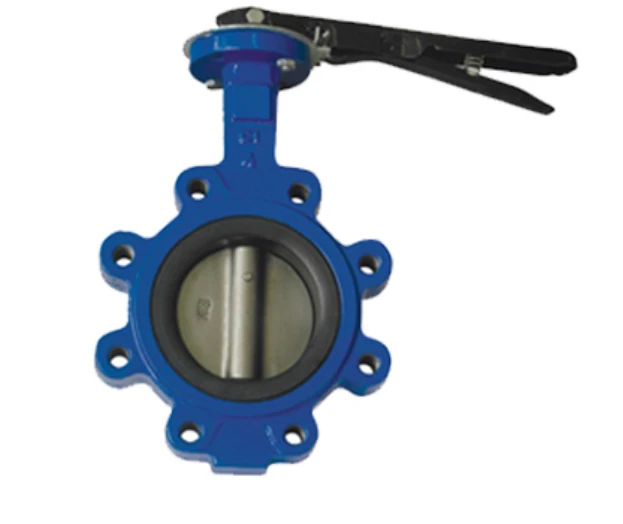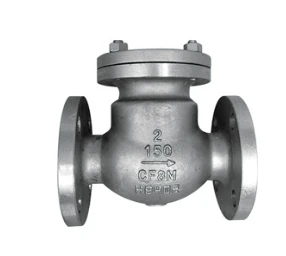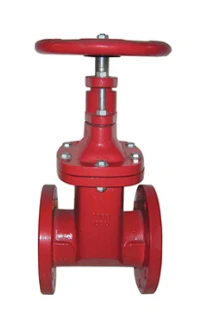Valves play a critical role in the mining industry, where they are used in a variety of applications to control the flow of slurries, water, chemicals, and other materials essential to mineral extraction and processing. The harsh conditions in mining environments require valves that are robust, wear-resistant, corrosion-resistant, and capable of maintaining excellent flow performance, even under challenging conditions. This need has led to the widespread use of specialized valves, such as knife gate valves, offset butterfly valves, check valves, and metal-seated ball valves, which can withstand the unique demands of mining applications.
Mining operations often involve the handling of abrasive and corrosive substances, such as slurries containing large particles, high-viscosity fluids, and chemicals with strong acidic or alkaline properties. These characteristics place significant stress on valves and other equipment. For instance, slurries in mineral processing can contain large particles and solid matter that may settle in the valve, causing wear and tear over time. Consequently, knife gate valves are a popular choice in the industry, as they are specifically designed to cut through thick, viscous materials. The sharp gate of a knife valve can slice through the slurry, allowing for a clean shut-off and preventing blockages, which is essential for minimizing downtime and ensuring efficient operations.
Butterfly valves, particularly offset butterfly valves, are another valuable type for mining applications. These valves are compact, lightweight, and highly effective in controlling the flow of fluids in pipelines of various sizes. Offset butterfly valves, where the disc is offset from the center of the valve body, provide reduced friction, which extends the valve's lifespan in abrasive conditions. Additionally, butterfly valves offer excellent throttling capabilities, making them useful in regulating the flow rate of slurries, water, and chemicals in mining processes. Their design also helps reduce the potential for corrosion and wear on the valve components, which is critical in environments where chemicals are present.
Metal-seated ball valves are often chosen for their durability and ability to withstand high pressures, temperatures, and abrasive materials. Unlike soft-seated valves, metal-seated ball valves offer enhanced resistance to corrosion, making them ideal for environments with chemicals that could otherwise degrade softer valve components. Metal-seated valves also have superior sealing properties, which helps maintain process integrity and prevent leaks that could compromise the safety of the operation.
Check valves are another essential component in mining operations. They prevent the backflow of fluids, which can cause contamination, equipment damage, or process disruption. In mining, backflow can lead to slurry or chemical ingress into pumps and other sensitive equipment, causing erosion and breakdown. By automatically stopping reverse flow, check valves protect equipment, ensuring that materials flow only in the intended direction.
In addition to selecting appropriate valve types, materials are critical when choosing valves for mining applications. Valves for the mining industry are often constructed from materials such as stainless steel, ductile iron, or special alloys that resist corrosion, erosion, and wear from abrasive particles. Coatings and linings, such as ceramic or rubber, are frequently applied to further protect the valves and enhance durability.
Maintenance is also a key consideration for mining valves, as frequent exposure to abrasive and corrosive substances can wear down components. Mining companies typically prioritize easy-to-maintain valves that allow for quick replacement of parts, reducing downtime and maintaining productivity. Valves with features such as replaceable seats, seals, and internal components help ensure that repairs can be performed efficiently without the need for full valve replacement.
In summary, valves are indispensable in the mining industry, serving to control the flow of abrasive and corrosive materials through pipelines. From knife gate valves to metal-seated ball valves, each type serves specific functions that enable safe, efficient, and continuous operation in the harsh mining environment. As the demand for minerals grows and environmental regulations tighten, the development of high-performance, long-lasting valves will continue to be essential to the success and sustainability of mining operations worldwide.
Related Products
Related Applications
 What Makes the Lug Type Butterfly Valve a Vital Component in Flow Control Systems
Jul 10,2025
In modern industrial and municipal systems, the lug type butterfly valve has emerged as one of the most adaptable and efficient solutions for regulating fluid flow.
What Makes the Lug Type Butterfly Valve a Vital Component in Flow Control Systems
Jul 10,2025
In modern industrial and municipal systems, the lug type butterfly valve has emerged as one of the most adaptable and efficient solutions for regulating fluid flow.
 Versatile Solutions in Flow Control: Check Valve Flange Type
Jul 10,2025
In modern pipeline systems, check valve flange type is one of the most critical components used to ensure unidirectional flow and prevent backflow.
Versatile Solutions in Flow Control: Check Valve Flange Type
Jul 10,2025
In modern pipeline systems, check valve flange type is one of the most critical components used to ensure unidirectional flow and prevent backflow.
 Understanding the Versatility of Gate Valve Flange Type for Industrial Systems
Jul 10,2025
This type of valve is most commonly used in systems where a straight-line flow of fluid and minimum flow restriction are needed.
Understanding the Versatility of Gate Valve Flange Type for Industrial Systems
Jul 10,2025
This type of valve is most commonly used in systems where a straight-line flow of fluid and minimum flow restriction are needed.
 Call us on:
+86-311-86935302
+86-311-86935302
Call us on:
+86-311-86935302
+86-311-86935302
 Email Us:
info@thriveonvalve.com
Email Us:
info@thriveonvalve.com South of Huanmadian Village Town, Ningjin County, Xingtai, Hebei Province, China
South of Huanmadian Village Town, Ningjin County, Xingtai, Hebei Province, China